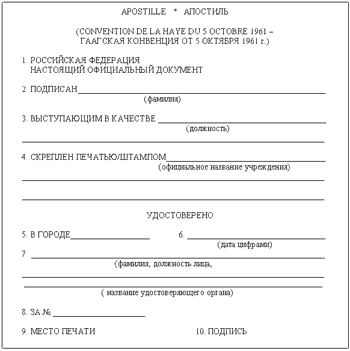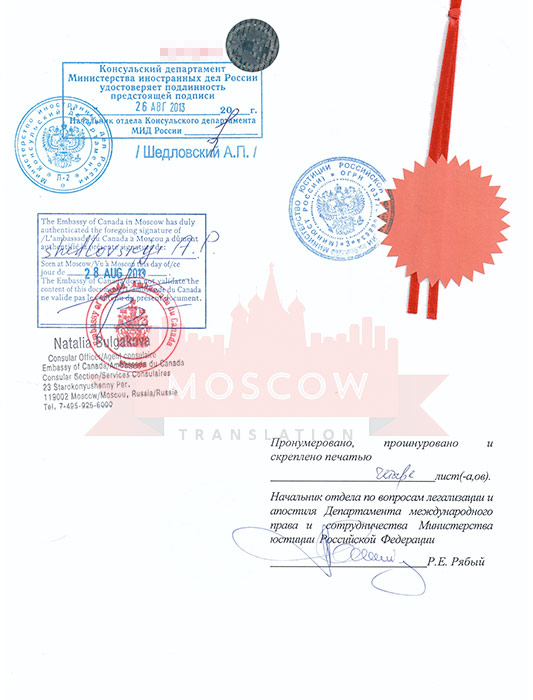
Apply to a foreign university with confidence
- Properly fulfilled documents
- Perfect motivation letter
- Support from a personal mentor
- Offers from several universities
Before submitting documents to a foreign university, you need to legalize them. We explain what is legalization, when it is needed and how it takes place in different countries.
Free consultation



Legalization of educational documents is a procedure for giving a diploma or certificate to a legal force in the territory of another state. It exists so that further actions can be taken with the document not only in the country where it was received but also abroad. Often, legalization is mandatory, although not the only, requirement for a document on education when entering a foreign country.
Legalization (apostille or consular) should not be confused with an officially certified translation of documents, which does not legalize the document, but only helps foreign organizations in its consideration. The recognition procedure also differs from legalization. It is needed to establish the equivalence of a diploma / certificate in the territory of the country of destination.
As a rule, legalization is needed if it is necessary to use a document on the territory of another country. At the same time, in addition to the diploma / certificate, the documents requiring legalization include:
The type of legalization depends on the country's participation in the Hague Convention: participating countries accept apostille, and the rest require consular legalization.
Legalization of an educational document is not required in the following cases:
It is worth noting that agreements can apply both to all documents and certain types of certificates.

There are two types of document legalization:
The main difference between the two types is that consular legalization is valid only in the country whose consulate legalized the document (for example, a Russian university diploma legalized by the Russian consulate in Canada is valid only in Canada), while an apostille affixed in Russia is recognized by all States that have ratified the Convention.
Another difference is in timing. Due to the complexity of the procedure, consular legalization takes longer than apostille.
The need and required type of legalization should be clarified in each specific case. Some countries, even in the presence of special agreements, require a document with an apostille (for example, Greece). At the same time, others, not participating in the Hague Convention, may recognise apostille (for example, Canada).
Legalization is always carried out on the territory of the country where the document was issued, with the help of competent authorities. So, for the implementation of the consular legalization of the certificate / diploma, it is necessary to apply to the Ministry of Foreign Affairs of your country and then to the consulate of the country where the applicant is entering.

Apostille is a special sign that is affixed to originals or copies of documents and means the legality of their use in other countries.
According to the Hague Convention, an apostille must be rectangular or square with a side of at least 9 centimetres and contain several pieces of information according to the model. The title is always in French: Apostille (Hague Convention of October 5, 1961), the rest may be given in French / English and / or the national language.
The method of affixing depends on the country: stamp, glue, seal, or sticker. Apostille can be placed on the document itself or attached. For example, In Russia, an apostille is in the form of a stamp directly on the document.

First of all, it is worth remembering that an apostille can only be affixed in the country where the document was received. Consulates or embassies of other countries are not suitable for these purposes. Apostilling is carried out by special authorities, which are determined by the document type. So, documents can be apostilled by:
Conditions for affixed apostille:
The need for an apostille should be clarified in each specific case. So, there are documents that, in principle, do not require legalization in many countries, for example, a passport.
Consular legalization is a more complex procedure, which is carried out in stages on the territory of two states. This type of legalization is relevant for those countries that have not ratified the Hague Convention.
As in the case of an apostille, only documents drawn up by the state model and having a distinguishable seal and signature can participate in the procedure. The result of consular legalization is a document that can only be used in the country whose consulate will certify it at the last stage.

To pass consular legalization, you must:
It is worth checking for additional requirements depending on the country. The whole procedure of consular legalization takes approximately 2-3 months.

The complexity of legalization and recognition lies in the fact that in some cases it is necessary to go through both procedures. In some — only through the first. In others — only through the second. However, there is another procedure — translation of a document into the language of the country of study, which also has its nuances in each country. For example, in the Czech Republic, only translations made by their notary or consular translators are accepted.
Below is a summary table of the procedures by their order of completion.
| Country | Translation of a certificate / diploma | Recognition in the country of study |
|---|---|---|
| Czech Republic | Consular | Nostrification |
| Great Britain | Notarial | Conducted by the university |
| The Netherlands | Notarial | Conducted by the university |
| Austria | Consular / Notary | Conducted by the university |
| Germany | Consular / Notary | Conducted by the university |
| Italy | Consular | Conducted by the university |
| Bulgaria | Consular | Recognition at the Ministry of Education |
| Poland | Consular | Recognition at the Ministry of Education |
| USA | Notary / Professional | Evaluation / Not required |
| Canada | Notary / Professional | Evaluation / Conducted by the university |
| Australia | Notarial | Conducted by the university |
| Norway | Notarial | Conducted by the university |
| Switzerland | Notarial | Conducted by the university |
| Spain | Professional | Homologation / Not required |
| France | Consular | Conducted by the university |
| Belgium | Consular | Equivalence / Conducted by the university |
After legalization, the diploma or certificate must be translated into the language of the country of study
60+ countries
we work with
$1,000,000 saved
by students through scholarships
6,400 offers
our students got